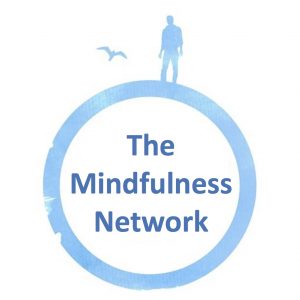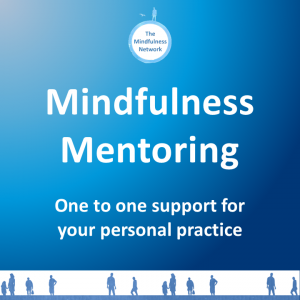

Mindfulness teacher, supervisor and mentor, Ed Halliwell, explores how one-to-one mentoring can help us cultivate, sustain and deepen a mindfulness practice…. This blog post is an edited transcript from a talk offered by Ed for the Mindfulness Network. You can watch the full recording of the event on our Community site.
“One-to-One mindfulness mentoring has been a powerful catalyst for change in my life. Through regular meditation practice supported and enriched by mentoring, I have learned to explore my deepest values and align my behaviour accordingly. Life is more fun, more playful, more creative and so much lighter as a direct result of mentoring. Few things have had as much of an impact on the quality of my life and my ability to contribute to the communities I am part of.”
Participant in mindfulness mentoring
Mindfulness groups are great, but are they always best?
In recent decades, a main focus for teaching mindfulness has been on group experience, and for good reason. Being together with others can facilitate the learning process, as we share common challenges in living, as well as the insights and possibilities that come when we practise meditation. The group experience helps many of us move out of isolation and into community.
But groups may not always be the optimum context for sharing mindfulness. In an MBSR or MBCT course, people are often left to decipher how the learning is relevant to their own situation. The general principles and processes of mindfulness are offered to the group, and teachers must trust that people will find skilful ways to implement these in their lives. Sometimes they are left with questions, such as how can mindfulness help with my relationship challenge, my lack of fulfilment at work, or my particular health condition? Everyone has their own unique circumstances and obstacles, and the teaching doesn’t always land. Participants might say later: “It took me a long time to realise that I was striving to attain a state of calm despite the whole course being about letting go of that.”
There are people who feel very uncomfortable working in a group, or whose circumstances make weekly classes difficult. For some, being in a group itself is difficult, sparking mistrust, stress and depletion, which hampers the learning. And then there’s the cliff edge issue – we create a learning container for two months and then suddenly it’s taken away and the individual may have to find their own way forwards. People can miss the sense of structure and accountability that the group gave them. More than eight weeks can be needed to embed and sustain a mindfulness practice for the long term.
“I sometimes find group environments too intense and it hinders me from benefiting from the practice. The pinpointed nature of one-to-one mentoring is deeply supportive for me – a really safe place to explore, notice and feel. The flexible balance of talking and discussion, specific and targeted practice together with guided suggestions for my own mindfulness practice between sessions has been invaluable. It has reduced the negativity in my life many times. Difficult conversations have become easier and my objectives clearer. I remember entering a session where I was convinced I knew what I should do next and how. Through a couple of short guided practices and support in noticing what was deep down I paused. The outcome was much better. As a result of mentoring, I am more thoughtful and observant. I have greater compassion for others and myself. I have learned to value what my body tells me and not to rush into what my brain is telling me I must do.”
Participant in mindfulness mentoring
What advantages can one-to-one mentoring offer?
In one-to-one mindfulness mentoring, the times and dates are agreed individually and are open-ended, so that each person can decide when they are ready to let go of the learning container. In sessions, we can zoom in on someone’s unique situation, process or challenge, looking at the content, patterns or processes that may be blocking them from flourishing fully. People are often more willing to share what’s happening for them in a one-to-one session – offering full attention to one person can create an environment of trust and healing for people who may feel vulnerable or isolated in groups.
Meditations can be tailored to suit someone’s current circumstances – at one moment, a person might benefit from a focus on grounding, and so we might drop into mindfulness of breathing or anchoring to the feet or hands. In another moment, they might benefit from the wider perspective found in an open awareness practice. If someone’s life is chaotic, we can work on cultivating structure, or if rigidity is an issue we can emphasise softening. A wide range of practices can be introduced flexibly to meet a person’s needs. Sometimes it might be most valuable to focus on kindness or soothing practices, while at other times it might be appropriate to move towards difficulty, or practise principles of mindful communication.
In one-to-one sessions a teacher can be completely focused on the mentee and the options most suitable just for them, drawing spontaneously from different frameworks and curricula to help them towards wholeness.
“I have meditated for years, but mentoring has allowed me to apply the principles of mindfulness to all areas of my life. I have found having the mentor’s undivided time, attention and wisdom hugely helpful. I have been able to open up and share my own personal struggles, which I would not have felt comfortable doing in a group setting. Having the ability to discuss and work through individual challenges, and be vulnerable has been important- it has made a huge difference to how I relate to my mental health challenges, and enabled me to handle them more positively and effectively.”
Participant in mindfulness mentoring
What defines mindfulness mentoring?
Like its group counterpart, mindfulness mentoring is a phenomenological approach. Through inquiry into our inner and outer worlds, supported by evidence from scientific studies, we can find wisdom that supports wholeness. Inquiring into a person’s experience as it presents session-by-session offers a highly targeted way for the mentee to test a range of hypotheses, such as that dissatisfaction is fuelled by an attempt to resist change in an ever-moving world, or that patterns of drivenness and aversion, and identifying with habits of conceptual and perceptual processing, inevitably lead to frustration.
Through tailored meditation practice during and in-between sessions, a mentee can deepen their experience of recognising and decentring from unhelpful and inaccurate narratives, acknowledging and unhooking from reactive habit patterns, and learning to come back over and over to a heart-felt connection with sensory experience. From this place of awareness and tangible contact, stepping into congruent actions that correspond with deeply help values is more likely. This can lead, over time, to a deep equanimity, peace and contentment in life.
A working definition of mindfulness mentoring for me therefore is as follows: “a one-to-one approach to understanding the mechanisms of our minds, bodies and environment through paying attention to current direct experience, and learning from this how to live with the greatest possible fulfilment, agency, and kindness.”
“It’s difficult to put into words how much I have benefitted from mindfulness mentoring. This year has been really challenging, with two bereavements and significant personal issues arising, and I don’t know how I would have survived mentally and emotionally without the anchor of one-to-one sessions. It has helped me navigate the challenges in a more resourceful and mindful way, suggesting strategies that helped me to discover depth, strength and compassion, even at the darkest times. This is the highlight of my month.”
Participant in mindfulness mentoring
What can this approach draw from?
We have a rich background of resources to draw from in mindfulness mentoring work. This includes thousands of years of Buddhist psychology, and the frameworks and practices from mindfulness programmes such as MBSR and MBCT, supported by decades of research. Each mentor will have their own life learning and support structures to bring too – I find my own experience of learning mindfulness as a way to see, understand and begin to unhook from patterns of anxiety and depression invaluable, as well as my exposure to methods such as ACT (Acceptance and Commitment Training), Dan Siegel’s Mindsight approach,, Ellen Langer’s different but complementary slant on mindfulness, and Ken Wilber’s mapping of stages of development.
I have also learnt from writers such as John Teasdale, Pema Chodron, Jeremy Lent, Iain McGilchrist and Chris Niebauer, from a wide range of poets including William Blake and Rainer Maria Rilke, as well as Mary Oliver and Danna Faulds, and from various newer mindfulness-based curricula, including but not limited to Mindfulness-Based Compassionate Living, Insight Dialogue, Mindfulness for OCD and the Frame By Frame and Taking It Further programmes developed at Oxford. I am also fortunate to have an excellent supervisor who is willing and able to support my one-to-one work.
Teaching mindfulness in this way requires the mentor to continue bringing curiosity to new and existing approaches, insights and reflections and to keep deepening their contemplative experience and understanding in a way that perhaps demands more than if they were sticking to a set curriculum. But the investment is worth it, leading potentially to great artfulness and aliveness in mentoring sessions, as each person can be met in a way that best suits them. It’s more like playing jazz than following sheet music.
Find out more about one-to-one Mindfulness Mentoring with Ed Halliwell and other mentors through the Mindfulness Network here:
Ed also offers one-to-one mindfulness coaching and mentoring, as well as group mindfulness courses via mindfulnesssussex.co.uk.





